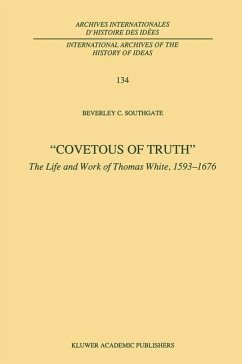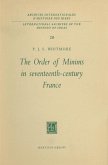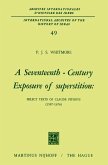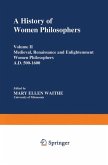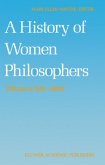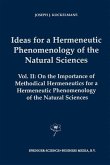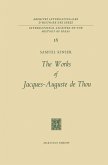Thomas White, in the quatercentenary of his birth, is due for historical rehabilitation. English Catholic priest, philosopher, theologian, and scientist, he was a renowned and notorious figure in his own day; and, though long forgot ten, his work exemplifies aspects of major current concern to historians of ideas: in particular, the significance of the newly-revived sceptical philosophy; the complexity ofthe transition from scholasticism to the new philosophy; and the whole role of"minor", non-canonical figures in the historyofthought. White's writings embrace theology, politics, and natural philosophy, or science'; and in all these three areas, his work, after centuries of comparative neglect, has slowly been resurfacing. His theological significance received intermittent recognition through the eighteenth, nineteenth, and early-twentieth centuries; but more recently his great importance as leader of a whole "Blackloist" faction of English Catholics has become increasingly clear. Condemned by co-religionists in his own time as a dangerous heretic, he has been assessed by modem scholars as an anticipator of twentieth-century trends in Catholic theology, and even as "probably, after John Henry Newman, the most original thinker as yet producedby modem English Catholicism."2 Blackloism implied not only a theological, but also a political position; and that position was clarified and publicised by White in his single political treatise, The Grounds of Obedience and Government, published in the mid 1650s. His provocative stance was widely misunderstood and misinterpreted, and was soon anyway rendered untenable by the restoration of the monarchy.
Hinweis: Dieser Artikel kann nur an eine deutsche Lieferadresse ausgeliefert werden.
Hinweis: Dieser Artikel kann nur an eine deutsche Lieferadresse ausgeliefert werden.

